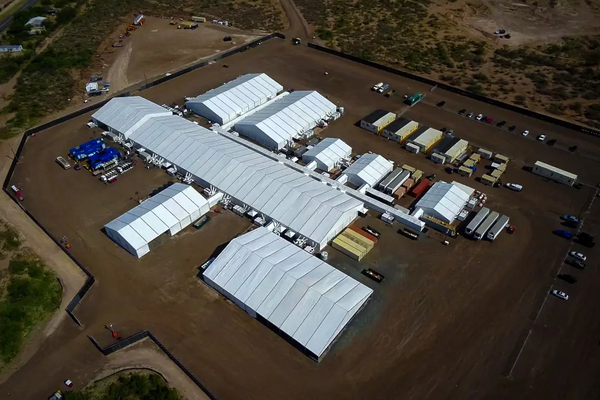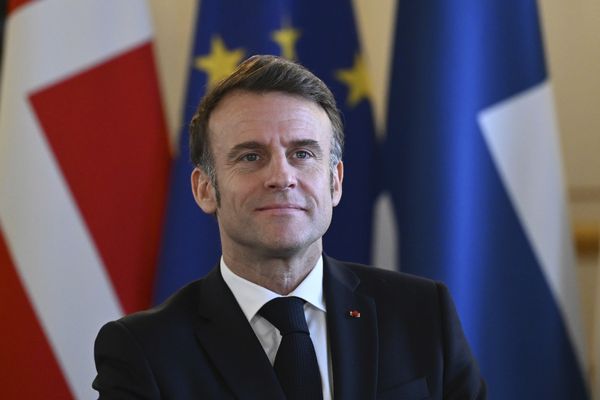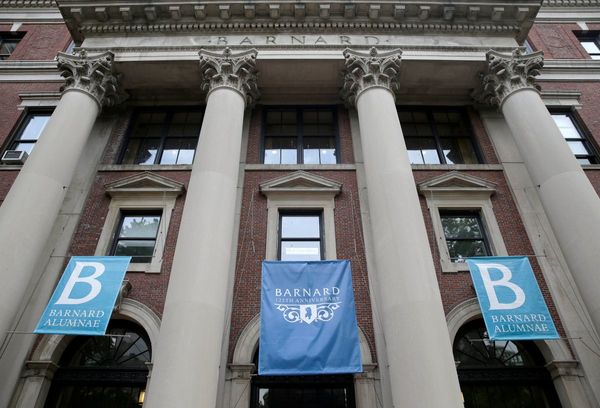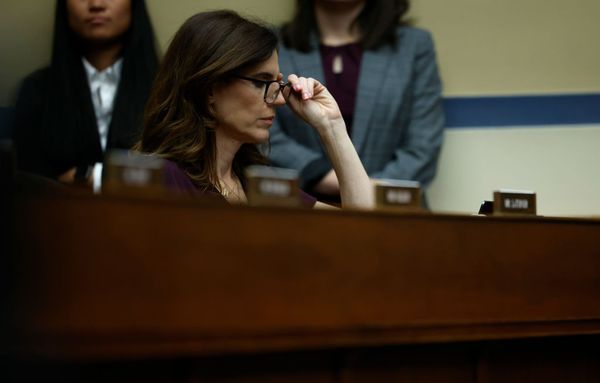
Rachel Reeves was making her way to Prime Minister’s Questions when we bumped into each other last week. She is now routinely described as “embattled” or – even more dreaded label – “beleaguered”. So I thought it polite to ask how she was feeling. “I’m very well, actually,” she responded and hit me with a smile so wide and beaming that she could find alternative employment advertising toothpaste.
Being chancellor is not just a numbers game. It is as much, if not more, a confidence game. The chief financial officer can never afford to look rattled about the balance sheet or fretful about the vultures circling their position. The more reason they have to feel anxious, the more imperative it is that they look nerveless. That she understands. “It’s a tough gig, but there’s no one tougher than Rachel,” says one of her admirers in the cabinet.
For sure, she is a steely character, but it would be surprising if Ms Reeves were not inwardly feeling bruised by her most torrid period to date. The recent surge in the yield demanded by lenders to the UK government took long-term borrowing costs up to the highest level in more than a quarter of a century at the top of the spike. Attempts to assuage the bond vigilantes by telling cabinet ministers to be “ruthless” about finding savings to public spending have agitated all those Labour MPs who didn’t come into politics to do austerity. Claims that there is no way she will be impelled to have an emergency budget containing further tax rises have been scoffed at by those who reckon she can’t guarantee that when the public finances are so fragile. Sir Keir Starmer gifted her opponents some ammunition when he took his time about declaring that the chancellor continued to enjoy his full confidence. The yearning for any sliver of good news was evident when gasps of relief gusted out of the Treasury because the latest inflation figure came out one tenth of one per cent lower than forecast, lifting expectations that the Bank of England will make another cut to interest rates next month.
The heat is on the self-proclaimed Iron Chancellor. It is not hard to come across Labour people, including ministers and Number 10 staffers, who think it was a bad blunder to restrict the pensioners’ winter fuel payment in the way that she did. Businesses continue to fulminate about her increases to their taxes, in some cases sincerely, and in others because it is a handy alibi for decisions to axe jobs or trim investment that they would have made anyway. But Ms Reeves’s most significant problem is not that she’s done things that aren’t popular. That is an occupational hazard and she has the consolation of knowing she has yet to arouse the visceral dislike experienced by George Osborne when he was so “beleaguered” that he got booed at the Paralympics in the wake of his “omnishambles” budget. Her fundamental problem is so obvious that it can be seen from outer space. The economy is flatlining. We’re not enjoying the “growth, growth, growth” that she and Sir Keir promised. It is stutter, stutter, stutter. The ambition to turn the UK into the fastest expanding economy in the G7, the prime minister’s avowed “number one mission”, has been made to look vainglorious. Over the three months to the end of November, GDP did not improve at all.
Elements of the government’s programme, including increased investment in infrastructure, pension reforms and the liberalisation of the planning regime, ought to make a difference over time. Perhaps the fabled wonders of AI, to which Sir Keir has become a recent convert, will make a future contribution. But in the here and now, it is the paucity of growth that makes Ms Reeves vulnerable. When you’ve got an economy that is bounding along, you can get away with a lot of mistakes as chancellor. When you’re presiding over an economy that is stagnant, every error is magnified and there’s little credit for the things you’re doing right. Unless some growth turns up soon, the government is going to face some seriously ugly choices about taxation and spending this year. That’s why Labour people have become so jittery.
One miscalculation was made before the election. This was to assume that bringing down the curtain on the Tory clown show and committing to “stability” and “fiscal responsibility” would be enough in themselves to lift the economy. Another error was made in the immediate aftermath of the election. That was to overdo the doom music about Labour’s inheritance. The understandable desire to hang the Tory record around the Conservatives’ necks came with the downside of sapping confidence among business and consumers. This was compounded by the long interlude of uncertainty between Labour’s arrival in office and its first budget.
The elusiveness of growth is fraying nerves at the top of government. Witness the clutching at any lever that might kickstart some activity, such as Ms Reeves summoning regulators of aviation, railways, energy and other industries to Number 11 on Thursday to urge them to remove barriers to investment. It is also getting a bit tense at the top of government. Mutterings from within Downing Street suggest that Sir Keir has been reminded that his other title is “First Lord of the Treasury”. Number 10 – or so it is said – is going to be more assertive with the chancellor. For all that, rumours of Ms Reeves’s imminent demise seem to me grossly exaggerated. One reason I say this is because she is lucky in her opponents, especially the Tory ones. It may have become boringly predictable to hear her answer Conservative attacks with scorn for their dismal legacy, but it is true that they left behind a dreadful mess, and voters know it to be so. There will have to be a prolonged period of atonement from the Conservatives before they can hope to be credible as critics of anyone else’s economic management. It was juvenile games-playing of Tories to clamour for Ms Reeves to respond to gyrations in the debt market by cancelling her trade mission to China. Had she scuttled the trip, the same people would then have accused her of spreading panic.
It’s easy to say, as do some on the left, that Labour should not have boxed itself in with the self-denying election promises not to increase the rates of income tax, employee national insurance or VAT. But I’m somewhat sceptical that the economy would be purring along and the government would be adored had the chancellor taken a bite out of people’s wages or put up the price of their shopping. A different band of critics accuse her of smothering growth by hiking the national insurance bill for employers. There’s some justice in that criticism, but those making it are never keen to identify a significant revenue-raiser Ms Reeves could have used instead to fill the fiscal black hole left by the Tories.
When chancellors are suddenly forced out, it is usually for one of two reasons. Some are brought down by a credibility-shattering shock. Jim Callaghan left the Treasury in 1967 when Harold Wilson’s Labour government, having previously denied that it would do any such thing, was forced to devalue the pound. Norman Lamont was done for by the Black Wednesday humiliation in the early 1990s. The most recent entry in this category is Kwasi Kwarteng, sacked by Liz Truss following the mega-disaster of his “mini-budget” shortly before she herself was defenestrated. These were high-speed blow-outs. By contrast, Ms Reeves is suffering a slow puncture to her reputation. It is not yet beyond repair.
The other common cause of the abrupt termination of a chancellorship is an unbridgeable difference of opinion with the prime minister. That was the case with the resignation of Peter Thorneycroft from Harold Macmillan’s government in 1958 and Nigel Lawson’s departure from Margaret Thatcher’s cabinet in 1989. We know that Sir Keir can be ruthless about disposing of people, but there is no evidence of a dispute between him and his neighbour on the fundamentals. Both their names are on the big decisions that he calls “tough and right”. He owns the government’s economic strategy as much as she does. Throwing her overboard would not be strong and decisive. It would look feeble and desperate. And also pointless, because her successor would be confronted with precisely the same dilemmas, and none of the mooted candidates would pursue a substantially different approach.
So prime minister and chancellor are lashed to the same mast and bound to the same hope that the gloom will be pierced by glimmers of higher growth. Whether it turns up will decide their entwined fates.
• Andrew Rawnsley is the Chief Political Commentator of the Observer







